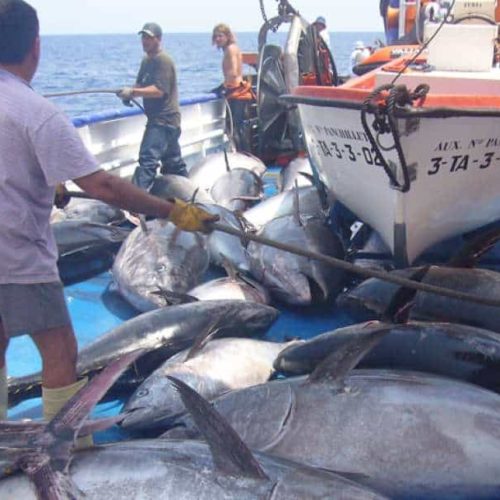Introduction
A story in Politico today raises questions about The Center for Public Integrity’s investigative reporting practices as these relate to our 2010 Looting the Seas project on the massive global black market in blue fin tuna.
This expose uncovered a $4 billion black market for blue fin tuna and detailed how some in the fishing industry were able to easily circumvent European Union catch limits, in part because of the flawed fish-tracking database used by international regulators. At no time have the results of this investigation been questioned, including the conclusions we reached, and the Center stands firmly behind its work.
Politico focuses on our use of an intergovernmental fish-tracking database maintained by the International Commission for the Conservation of Atlantic Tunas, or ICCAT. The Center had access to the database information through several concerned parties including member countries of the nearly 50 nations that make up ICCAT. This work required journalistic and legal judgment calls about the use of the data. Our work was entirely focused on counting dwindling stocks of blue fin tuna. The use of this data has been fully scrutinized by journalists and lawyers and the Center’s Board of Directors. The conclusions of our investigation have now been strongly supported by the recent unanimous action of ICCAT in which the organization agreed to overhaul their flawed and outmoded blue fin database to better deter the illegal market.
The Politico story accuses the Center of checkbook journalism. We never engaged in such a practice. We hired one of the most recognized and knowledgeable experts on bluefin tuna fishing and the international quotas that are involved. He was paid as a consultant to the Center for his expertise and time helping us with this project, including his travel to Washington, D.C.
Our priority throughout this matter has been to conduct a thorough examination of the internal questions that were raised about this report. Our Board of Directors was confident in the facts of the story, and our reporters and editors believed they had legal clearance to use this data. The Board also believed there was room to have a more deliberate decision-making process in place going forward and we should provide staff training to that effect. In January, 2011, the Board issued a statement backing the Center’s investigation: “The board recognizes the outstanding reporting done by ICIJ members: the quality of the reporting, including the blue fin tuna series, remains above question and beyond doubt.”
I also asked former Center Board Member Bill Kovach, considered the dean of American journalism, to conduct a review of the investigation’s ethics and methodology. His conclusion was that the work was “ethical, sound and fully in the public interest.”
Our readers and supporters should feel confident in this assessment and know that the Center remains committed to delivering the highest quality of investigative journalism in the public interest. Looting the Seas, as our Board concluded, is firmly in the best tradition of the Center’s high quality investigative work.
Bill Buzenberg
Executive Director


Join the conversation
Show Comments